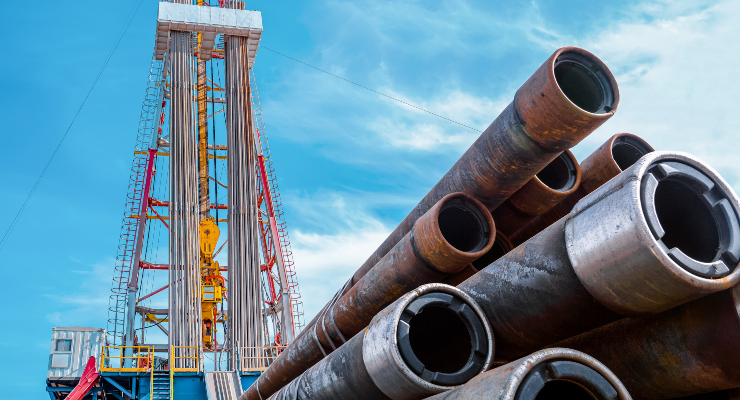
Companies will be able to again search for gas in Victoria with the lifting of a nine-year moratorium from today. But regardless of what they find, exploitation of onshore reserves won’t fix the state’s predicted gas shortage and rising prices, according to the state government’s own investigation.
The Andrews government announced last year it was lifting the halt on onshore conventional gas exploration, imposed by the Baillieu government in 2012, after a three-year investigation by the Geological Survey of Victoria found that restarting the industry could be done with “minimal environmental impact” and generate up to $300 million a year for regional economies.
The survey estimated that up to 830 petajoules of gas — about four times the state’s annual consumption — could be found in the Otway and Gippsland basins. But it concluded that would not be enough to affect gas prices or meet an expected supply shortage in the state as soon as 2024.
Lifting the moratorium would help in the short-term as Victoria transitions away from its reliance on gas, according to Tony Wood, energy and climate change director at Grattan Institute and former industry executive. But he was sceptical of the government and industry’s claims it would put “downward pressure” on household gas prices.
“Gas, wherever it comes from, is going to be more expensive than, historically, we’ve paid for gas on the east coast of Australia,” Wood said.
On a national level, Wood was critical of the federal government’s push to subsidise the industry with its “gas-fired recovery”, given huge advances in wind and solar technology.
“The role for gas may only be as a backup to renewables, in which case, whilst it might be important, we won’t actually use that much gas,” he said.
“We do have to be planning for a future where we won’t be burning gas.”
Victorians have relied on cheap offshore gas for decades, but reserves in Bass Strait are rapidly diminishing and shortages are looming within the next few years.
Rather than focusing on supply issues, governments should be focusing on addressing competition issues in the gas market, according to Deakin University energy law expert Samantha Hepburn.
Efforts to increase supply rather than using regulation to control prices was “simply insufficient”, she said.
While climbing gas prices would provide incentive for companies to pursue onshore gas reserves, Wood said there was no guarantee of future demand.
“For most Victorians, an all-electric home would actually be cheaper than electricity and gas.”
But this transition would not come quickly, he said. There are more than two million household gas connections using 65% of Australia’s total domestic consumption.
The director of the Victorian Geological Survey, Paul McDonald, said gas will “continue to play a role in supporting Victoria’s transition to a cleaner energy future”.
Friends of the Earth’s Cam Walker said using gas as a transition fuel “probably made sense in the 1990s”, but this rationale has been surpassed by advances in renewables and battery technology.
Lifting the moratorium was “inconsistent” with the state government’s own targets for reducing carbon emissions, Walker said.
“If they have a commitment to reduce their emissions by 45-50% by 2030, then why would you be creating new sources of emissions?”
Analysts and environmentalists have also questioned the emissions modelling in Victoria’s onshore gas survey, with the Australia Institute critical of the surveyor’s decision to ignore actual emissions from burning the gas, which could be up to 46 million tonnes of CO2 — 88% more than the report estimated.
The extraction of conventional gas does not involve the controversial practice of hydraulic fracturing or “fracking”, which was permanently banned in Victoria last year.
This story is co-published with The Citizen, a publication of the Centre for Advancing Journalism, University of Melbourne.







Australia does not have a gas shortage. It is the world’s biggest exporter of LNG.
Australia’s shortcoming is in having a federal government which will not mandate a sovereign energy reservation policy, such as the USA did way back in 1974. And hey, isn’t the USA the great leader in letting the free market reign?
There is no need to risk our valuable agricultural and environmental land and water to fracking, we simply need to ship a small amount of our enormous gas reserves to our own ports, and have it provided at demonstrably fair prices.
All we need to do is elect the right federal government with the right policies.
It really IS that simple.
I’m wondering how long it will be, before those terrifying temperature charts from Canada will start impacting on our local pollies.
The fantasy that we’ve got until 2050 to achieve net zero emissions doesn’t look like it will survive reality.
Reginald Francis Xavier CONNOR (1907 – 1977) had the policy answer all those years ago.